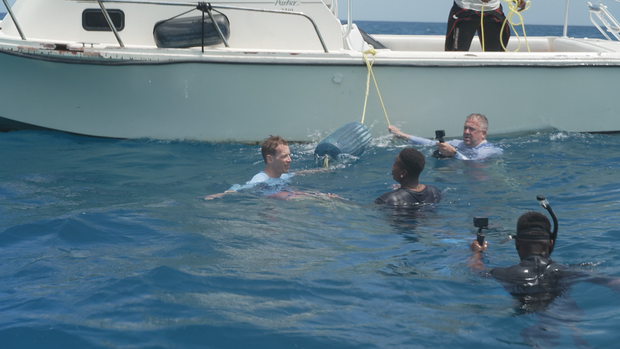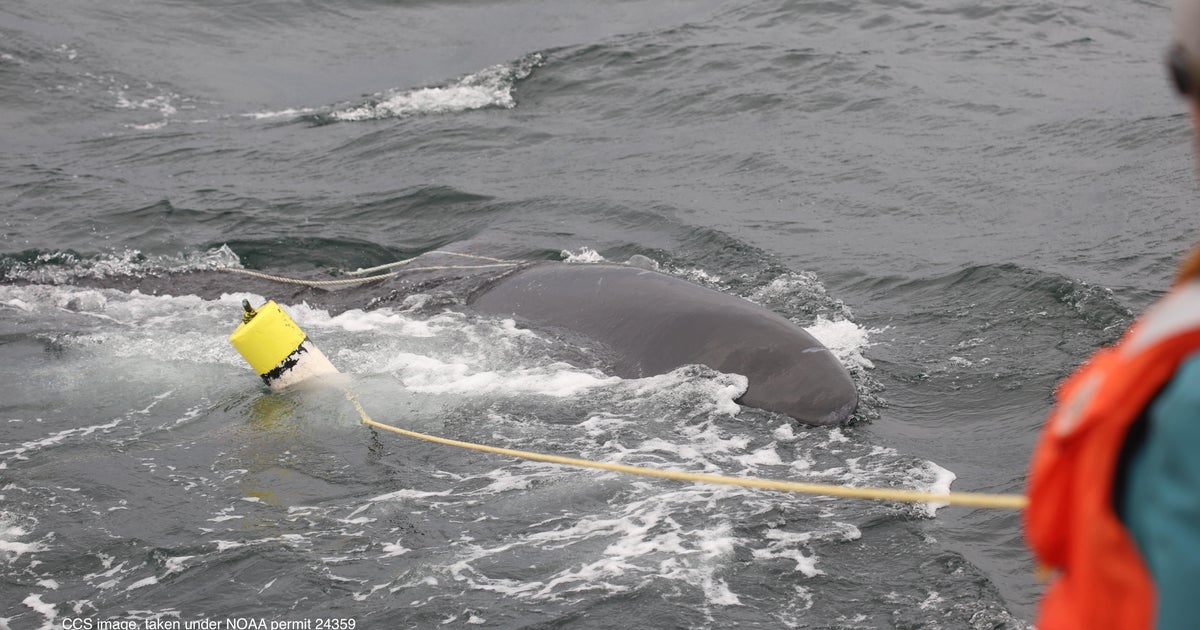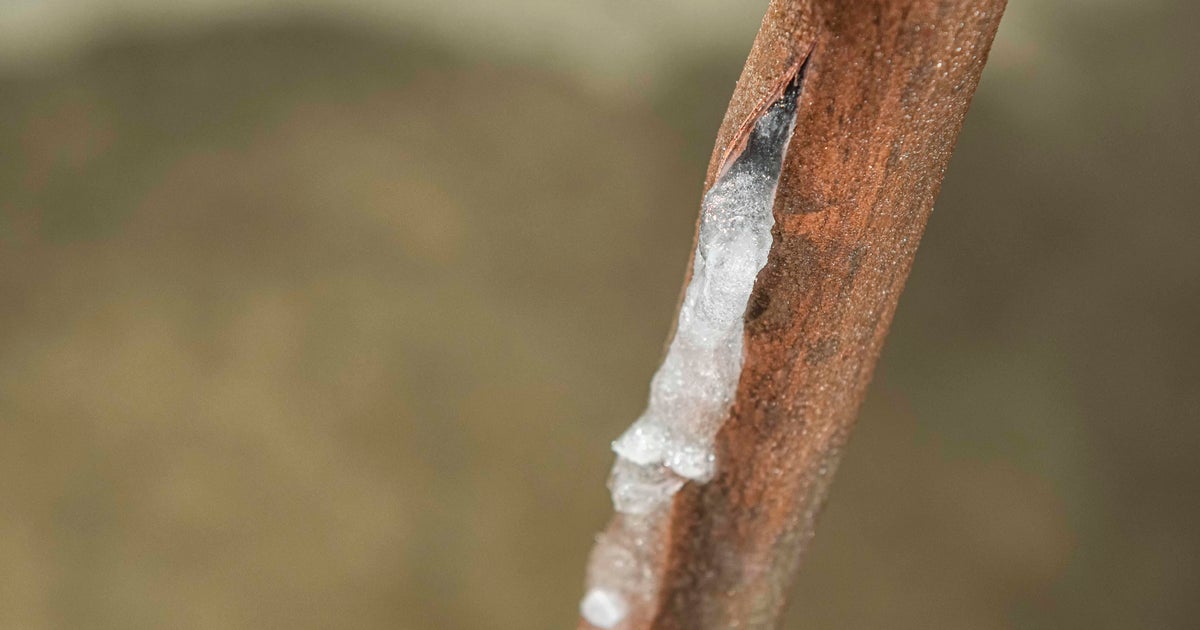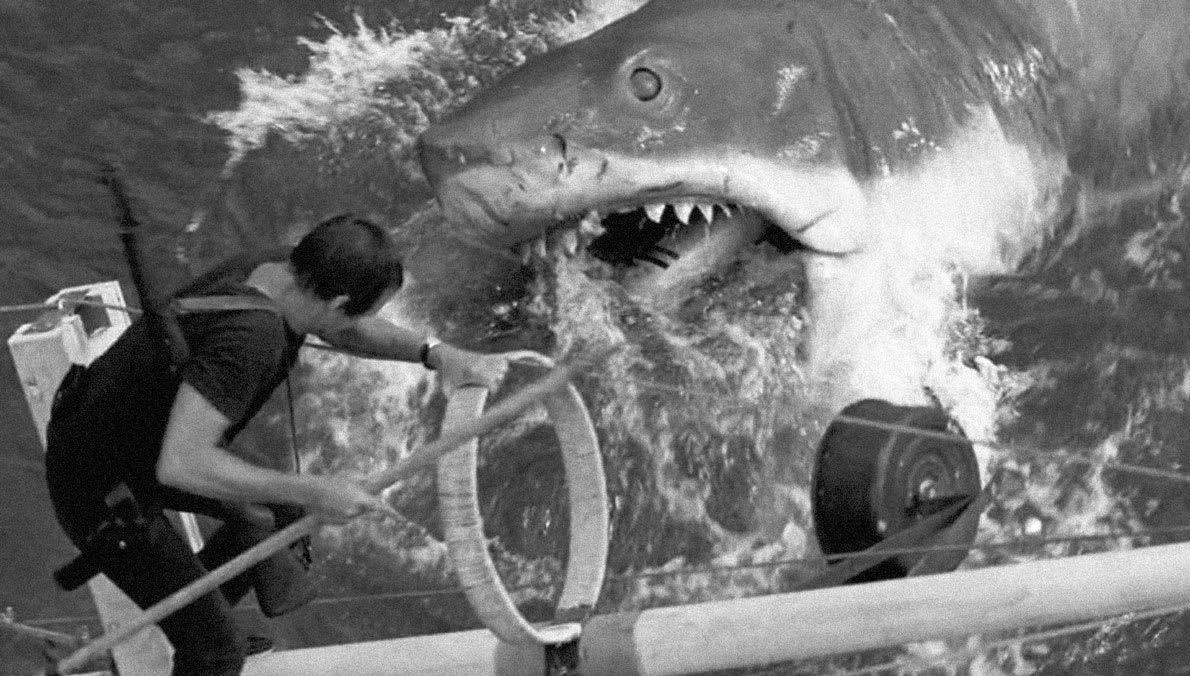Sharks do react to blood in the water. But as a CBS News producer found out, it's not how he assumed.
CBS News climate producer Chris Spinder swam with sharks for a "CBS Mornings" story about protecting vulnerable populations of the apex predators. In this producer's notebook, he shares his experience.
I wasn't overly concerned about jumping into the brilliant blue waters of the Bahamas — even though I knew full well reef sharks were circling the sea floor about 50 feet beneath my legs.
The CBS News team was in the Exuma Cays Land and Sea Park, shooting a story about how Marine Protected Areas — federally designated places where human activity is managed to protect marine ecosystems — are helping endangered shark populations recover.
I needed to get shots of the shark researchers we were profiling from a water-level point-of-view, and heading into the water was a calculated risk I was prepared to take — especially because I assumed the sharks would be more interested in the camera contraption scientist Candace Fields had just deployed as part of her work.
Populations of reef sharks, which are important to the health of coral reefs, have declined precipitously around the world in recent years. Caribbean reef sharks can grow to more than 9 feet long, but aren't considered aggressive.
I got the shots we needed and climbed out of the water, only to discover that a 2-inch gash on my ankle, likely caused by one of the propellers on the boat's outboard engine, was dribbling dark red blood down onto the deck.
It wasn't a lot of blood, certainly nothing serious I hadn't dealt with before, and I quickly dabbed it away and got back to work. But then, an ominous realization washed over me: Sharks plus blood in the water equals not good news.
Almost immediately, all of my false bravado about swimming with sharks disappeared and I turned to Fields with a look of slight panic. Did I just escape an almost-certain shark attack brought on by a 450-million-year-old uncontrollable feeding frenzy instinct?
"No, you're fine," Fields reassured me.
Turns out, the assumption that human blood attracts sharks is one of the many misconceptions that have conspired to give the apex predator of the seas an unfairly bad rap.
"Of course they have the capacity to smell your blood, but that tiny drop of blood isn't going to create any real scent," she said.
As I considered objecting to her characterization — it was more than "a tiny drop" of my blood — she calmly informed me that sharks crave fish blood, not human blood. I had never heard that, in more than a decade of producing stories about these fearsome yet misunderstood animals.
"Think of it like this," Fields said, "you can smell both rotting garbage and a freshly baked tray of cookies. But you don't really want to go check out the garbage, while you definitely will check out the cookies."
Reeling a bit from being compared to rotting garbage, I asked for some proof on the subject.
A few years ago, she said, researchers in the Bahamas ran an experiment where they put human blood in the water with a bunch of sharks — and the sharks didn't really have a significant reaction. But when the researchers put fish blood in the water, those same sharks went crazy. You can see that video below:
"So it's just showing they're not really driven toward the smell of human blood, at least not the way that people think," she said. "You know, like if they have a little cut, it's going to be the end of the world."
And just like that, my chance to gloat, to revel in risking life and limb for the sake of journalism, had dissolved like tiny drops in a big blue ocean.






